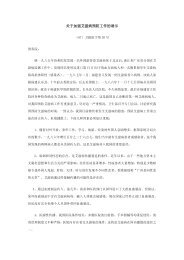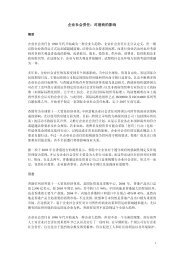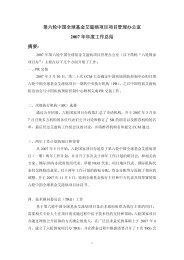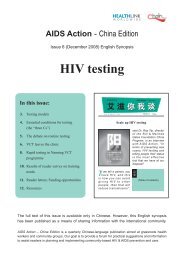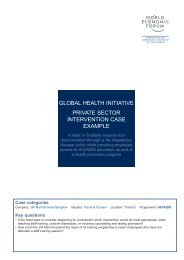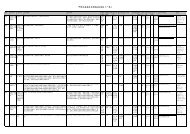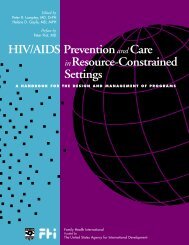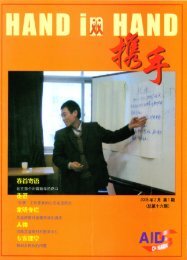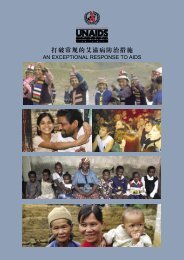The Training of Trainers Manual - UNFPA
The Training of Trainers Manual - UNFPA
The Training of Trainers Manual - UNFPA
You also want an ePaper? Increase the reach of your titles
YUMPU automatically turns print PDFs into web optimized ePapers that Google loves.
Day 6<br />
Process evaluation consists <strong>of</strong> quantitative and qualitative assessment to<br />
provide data on the strengths and weaknesses <strong>of</strong> a project’s components. It<br />
answers questions such as: Are we implementing the programme as planned<br />
What aspects <strong>of</strong> the programme are strong Which ones are weak Are the<br />
intended clients being served What can we do to strengthen the programme<br />
Are we running into unanticipated problems Were remedial actions<br />
developed Were these actions implemented<br />
Outcome evaluation consists <strong>of</strong> quantitative and qualitative assessment <strong>of</strong> the<br />
achievement <strong>of</strong> specific programme/project outcomes or objectives. Usually<br />
conducted at the project-level, it assesses the results <strong>of</strong> the project. Outcome<br />
evaluation addresses questions such as: Were outcomes achieved How<br />
well were they achieved If any outcomes were not achieved, why were they<br />
not What factors contributed to the outcomes How are the clients and their<br />
community affected by the project Are there any unintended consequences<br />
What recommendations can be <strong>of</strong>fered to improve future implementation<br />
What are the lessons learned<br />
Impact evaluation is the systematic identification <strong>of</strong> a project’s effects –<br />
positive or negative, intended or unintended – on individuals, households,<br />
institutions, and the environment. Impact evaluation is typically carried out<br />
at the population level, rather than at the project level. Furthermore, impact<br />
evaluation refers to longer-term effects than does the outcome-level evaluation.<br />
Exercise: Monitoring and evaluation<br />
Objectives<br />
To identify suitable strategies for monitoring and evaluation <strong>of</strong> peer<br />
education programmes<br />
To exchange personal experiences<br />
60<br />
minutes<br />
Materials<br />
Flip charts and markers<br />
Process<br />
Divide participants into small groups <strong>of</strong> people who work in a similar<br />
context (if possible), such as peer education in school settings, in out-<strong>of</strong>-school<br />
settings, with hard-to-reach youth, etc. Ask the groups to brainstorm on the<br />
following key questions:<br />
Section 2. Guidelines for <strong>Training</strong> <strong>of</strong> <strong>Trainers</strong><br />
115



